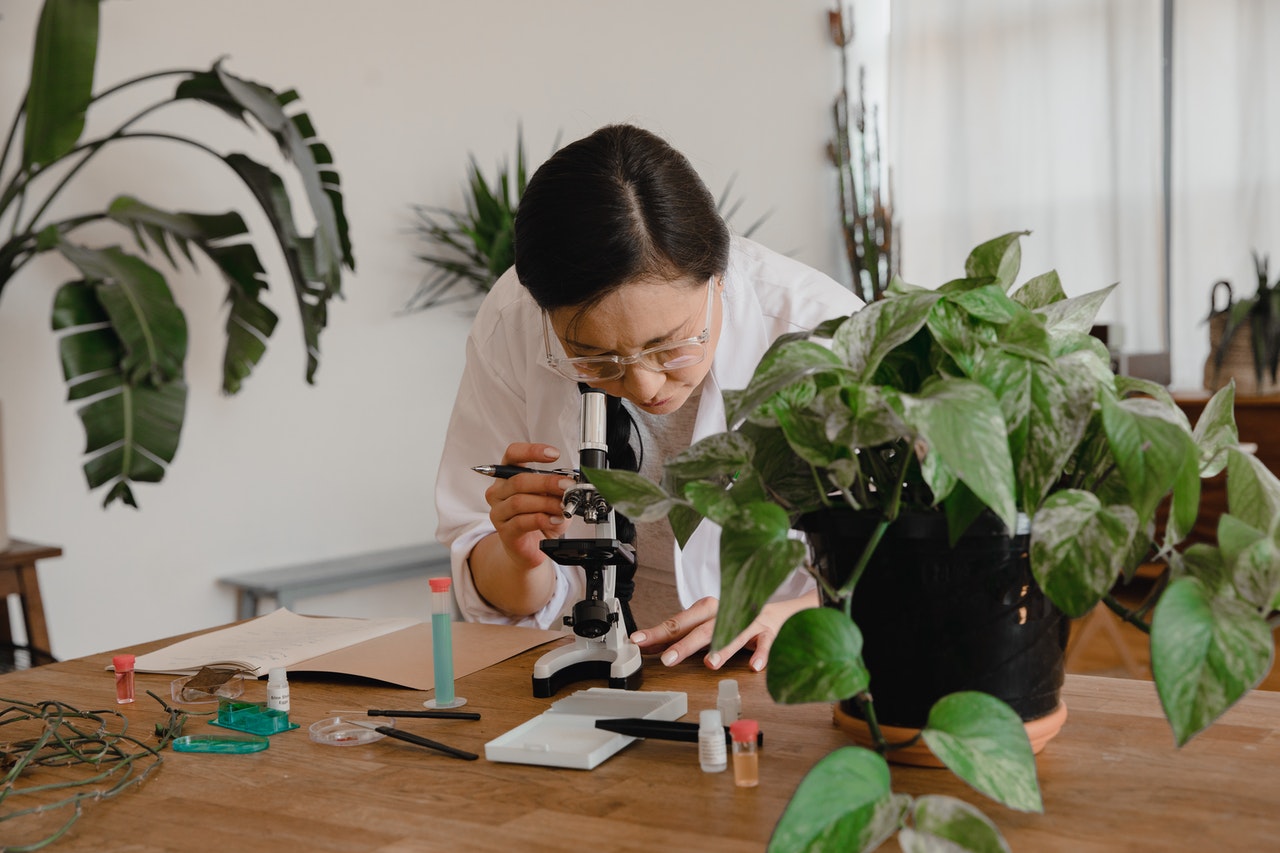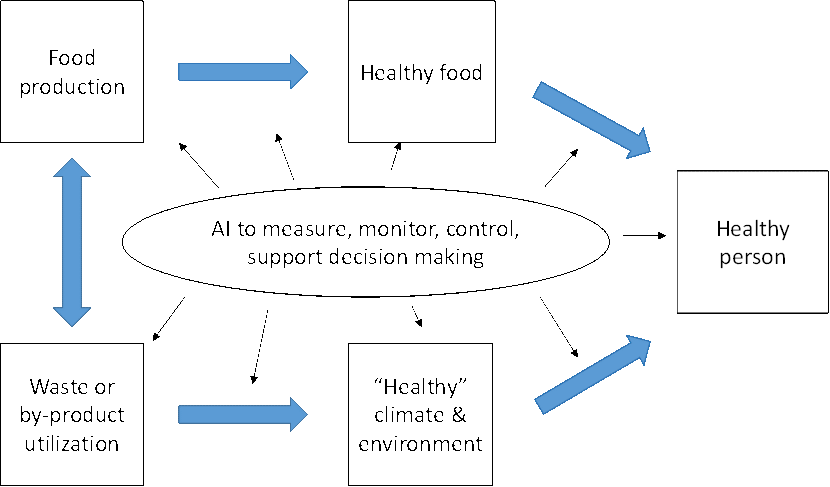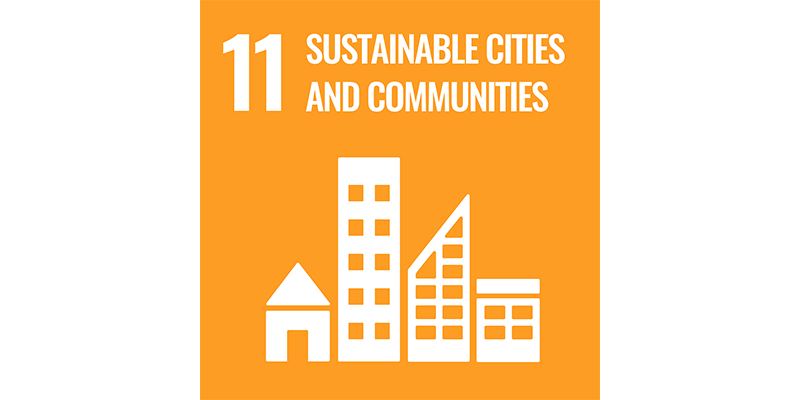Seed Fund Projects
The research team of Sustainable UM 2030 have initiated a seed fund for Sustainable Research Spearheads. The aim of this seed fund is to unlock a large unexploited sustainable research potential by increasing cross-faculty cooperation. More importantly, this will also build on a more active community that connects cross-faculty sustainability research and facilitates interdisciplinary and transdisciplinary sustainable research that contributes to societal challenges, the SDGs and a fossil free society.
In the past three academic years, one round has taken place each time. Scroll down for:
Granted projects 2023-2024
Granted projects 2022-2023
Granted projects 2021-2022

Granted Seed fund projects academic year 2023-2024
Taking a trans-disciplinary approach to explore the impact of shocks on the transition to a fossil-free society
With this proposal, we would like to contribute to a better understanding of shocks and the impact they can have on the transition to a fossil free society. The challenge is to connect sustainability transition research with insights on shocks/crisis in other disciplines (crisis management, information management, psychology etc.) to inform better policy outcomes. The result of this research would be to help stakeholders (e.g., policymakers, emergency services, citizens) respond to shocks in a way that can promote - or accelerate – the transition to a fossil-free society.
This is a collaborative project between the faculty of FPN, SBE and FSE. If you need more information on this project you can contact Nicole Rijkens.
Accelerating the transition to a fossil-free society - Aligning science, law, and strategy in fostering the shift to biobased products
The transition to a fossil-free society involves a shift in production and consumption of fossil fuel (FF) based products (e.g., petroleum, coals, gas) to alternative non-fossil fuel (non-FF) based products, including biobased products based on bioenergy (made from biomass), such as wood, energy crops, crop residues, and organic waste. This shift is urgently needed to address the challenges of climate change. The transition to a FF-free society is based on the fundamental premise that the greenhouse gas (GHG) emissions from FF-based products (“carbon footprint”) are higher than those of biobased products, and that the uptake of biobased products is sustainable (i.e., does not create other environmental or societal costs) and inclusive.
As a result, to enable and accelerate this transition, it is of key importance (1) to measure accurately the environmental impact of emissions from FF and biobased products (a question of natural science); and, using the outcome of this research, (2) to establish a regulatory framework incentivizing the transition from FF-based to biobased products, taking into account the environmental impact of their emissions and sustainability criteria (a question of law); and, based on (1) and (2), (3) to develop an industry strategy across global value chains (GVC) for companies to seize the opportunities of the shift to biobased products (a question of strategy). Our collaboration aims at matching these questions in an interdisciplinary manner.
This is a collaborative project between the faculty of FSE, SBE and LAW. If you need more information on this project you can contact Dominic Coppens.
The role of STEM education in the production of greenhouse gases
There is no doubt that training future STEM scientists is one of the most prospective tools to define and implement long-term solutions within the global sustainable development goals. Consequently, multiple highly specialized study programs are constantly being introduced at universities worldwide. However, together with a rapidly increasing number of students, this raises the following question: is STEM education toward greener solutions still sustainable itself? What is the long- and short-term impact of the STEM education on the environment, but also the health and well-being of the students and staff members of Maastricht University (UM)?
The main aim of the project is to involve students in performing a qualitative and quantitative analysis of the GHG emissions at UM, initially focusing on STEM-related activities, and broadening the research question towards the occupational safety and health of all of our students and staff members. In parallel, the obtained systematic knowledge will be used as a starting point for the general UM initiative, to raise awareness, and propose potential interventions for educational practices.
This is a collaborative project between the faculty of FHML, SBE and FSE. Contact Katarzyna Maria Dziubinska-Kuehn for more information on this project.
GREEN-UP: Green Renewable Energy from Urine: Production of Bacterial Ammonia: Biological prototype, Life cycle analysis, Business plan and IP strategy
We propose an innovative proof-of-concept technology to manage and valorise nitrogen (N) from urea of urine to reduce environmental emissions and support the battle against climate change. Energy from fossil resources could be manufactured more sustainably through fermentation. Therefore, we propose the development of a carbon-neutral route to produce green bacterial ammonia that could serve as both biofuel for transportation and an energy carrier (to package and store hydrogen) from abundant, low-cost urine or sewage. We will use our well known methods for genetic engineering of Clostridium. Moreover, a life cycle assessment will be performed to assess and quantify the carbon footprint of the products and compare it with conventional ammonia production. The project will also create a state-of-the-art business plan, based on the business model canvass methodology and looking specifically at market potential and industrial scalability. Finally, the project will deliver a detailed IP plan in collaboration with Brightlands.
This is a collaborative project between the faculty of FHML, SBE and Law. Contact Philippe Lambin for more information on this project.
- Optimism as a source of renewable energy in the transition towards a fossil-free society
- Taking a trans-disciplinary approach to explore the impact of shocks on the transition to a fossil-free society
- Accelerating the transition to a fossil-free society - Aligning science, law, and strategy in fostering the shift to biobased products
- The role of STEM education in the production of greenhouse gases
- GREEN-UP: Green Renewable Energy from Urine: Production of Bacterial Ammonia: Biological prototype, Life cycle analysis, Business plan and IP strategy
Granted Seed Fund projects academic year 2022-2023
Biobased materials: towards more efficient to patient-friendly chemotherapy
Being one of the greatest health threats, cancer has a direct impact on society. Contribution to cancer curability present a relevant technological, social and economic impact in line with the SDG goal of Good health and well-being.
In conventional chemotherapy, anticancer drugs travel through the body affecting healthy cells and causing severe side effects. Thus, an efficient anticancer therapy must combine cancer cell-killing activity with targeting properties.
The fundamental aim of our study is to develop biobased, degradable drug carriers with high affinity and selectivity toward cancer cells. The outcome of our research is envisioned to improve the efficiency of administration and biocompatibility of anticancer drugs, thereby reducing the side effects of chemotherapy.
The interdisciplinary collaboration will bridge between chemical and medical sciences to develop a novel biobased material (drug carrier) that would advance towards a patient friendly anticancer therapy. To reach that goal, Aachen-Maastricht Institute for Biobased Materials (AMIBM) will collaborate with Department of Pharmacology & Toxicology (PharTox). With Sustainability UM2030 grant, we want to demonstrate the importance of the topic and its feasibility. Our team is committed to establish a strong collaboration that will continue beyond the seed fund phase.
Contact Jacek Walkowiak to know more about this research project.
Plant Planet Plate: Limburg
Enhancing and protecting biodiversity is of interest to all, especially in the face of ongoing climate change. There are numerous intimate entanglements between humans and other species, many of which have shaped the course of entire histories and cultures. The plant humanities approach celebrates these overlaps, relying on humanistic theories, models, and ideas to explore and better understand the natural world.
Plant Planet Plate: Limburg is an interdisciplinary project whose aim is to generate an open-access, peer-reviewed, multimedia digital essay archive using JSTOR Juncture on the flora of Limburg. The plant narrative essays will be no more than 3000 words in length, available in multiple languages (Dutch, English, Limburgs, French, German), and feature multimedia elements to creatively capture the colourful lives of plants and their relationships with humans. Whether they are used as food, medicine, considered magical, or all three – we are documenting and thus safeguarding this valuable local ecological and folk knowledge about the plants of Limburg. We are especially interested in collecting recipes and showcasing student-created botanical illustration. This project unites scholars based in disciplines of ethnobotany / food studies / medical anthropology (Thao Dam - FHML), botany (Roy Erkens - FSE), and digital humanities (Aodhán Kelly - FASoS).
The role of STEM education in the production of greenhouse gases
There is no doubt that training future science, technology, engineering, and mathematics (STEM) scientists is one of the most prospective tools to define and implement long-term solutions within the global sustainable development goals. Consequently, multiple highly-specialized study programs are constantly being introduced at universities worldwide. However, together with a rapidly increasing number of students participating in these laboratory classes, this raises the following question: is STEM education of students toward greener solutions still sustainable itself?
In this project, we will employ non-dispersive infrared (NDIR) spectroscopy to investigate the gaseous waste, especially greenhouse gases, produced during the laboratory work done by students at UM, and discuss its contribution to local air pollution. Based on the obtained results, we will verify to which extent the practical laboratory education of the Maastricht STEM students has an impact on the environment. Finally, long-term recommendations will be offered, to set an example for other study programmes, research facilities, and SMEs in the Limburg province.
Contact Katarzyna Dziubinska-Kühn for more information about this research project.
Impact of recycled plastic food packaging
Impact of recycled plastic food packaging on human health in a circular economy: a case study using a combined approach of bioassays and LCA
Our society runs on what the earth gives us: we use the raw materials for food, shelter, heat, clothing, electrical appliances and mobility. The need for raw materials is only increasing. In 2050 there are expected to be more than nine billion people who need sufficient food and water and want to live in prosperity. To make this possible, the circular economy is needed.
Plastics are polymers and come in many forms, from the transparent plastic sandwich bags to the hard coloured Lego building blocks. After the plastic has been used, it reaches the waste phase, where it may be upgraded again to reusable raw materials, based on the objective of the circular economy. New plastic recycling processes are emerging such as the chemical recycling processes, which chemically breakdown the plastics, and mechanical recycling to maintain the quality of recycled plastic as high as virgin plastics. This makes the choice of the recycling process very challenging. To find the best recycling process, Life Cycle Assessment (LCA) is a proven tool as it is aimed to quantify the environmental impacts associated with the entire lifecycle of food packaging starting with the raw material extraction, then going through the manufacturing, transport, and use stages, and finally ending with the disposal stage.
However, all the impacts associated with human health cannot be addressed by LCA especially when the reusable plastics are used as food packaging materials. It is currently not known what the effect of the recycling process of plastics and their use in the food industry is on the safety aspects of food products. For example, if these products release contaminants or microplastics, this might influence human health in the end. It is therefore of outmost important to investigate the migration/leakage of contaminants and microplastics from recycled food packaging materials to food and the subsequent exposure of consumers to these chemicals and particles.
The current interdisciplinary collaboration will benefit from both LCA and bioassays to quantify as realistically as possible the total impacts of recycled plastic food packaging on human health.
Contact Misha Vrolijk for more information on this research project.
Granted Seed fund projects academic year 2021-2022
The first call to apply for this fund went out mid 2021. In December 2021 two research projects were granted with seed fund to start their sustainability research.
Foodsy
Do you follow a healthy diet? Even in a country like the Netherlands, around 85% of adults do not meet the recommended intake of fruits and vegetables. After World War II, steps to prevent hunger resulted in the production of too much meat, butter, and other unhealthy products with a high impact on the environment. This food chain is neither healthy nor sustainable.
The interdisciplinary team FOODSY (for ‘Food Systems’) brings together UM researchers from disciplines including artificial intelligence, data science, toxicology, biobased materials and sustainable development. Together, they will develop sustainable food systems that have low environmental impact and result in food with high nutritional value. Their approach includes efficient use of waste from the production process, for instance to create bio-based plastics, and artificial intelligence as a tool to support decision-making and measure the impact on the food, climate and environment.
The FOODSY team will use the Sustainability UM2030 grant to develop their research agenda. By demonstrating the strength of their collaboration, the FOODSY team is determined to establish a long-term collaboration that continues well past the scope of this seed fund. Their ultimate goal is to contribute to solving malnutrition – first in the Netherlands, then worldwide.
The FOODSY team consists of prof. Anna Wilbik (DKE), prof. Theo de Kok (TGX), prof. Pim Martens (UCV), prof. Ralf Peeters (DKE), prof. Frank Thuijsman (DKE) and prof. Yvonne van der Meer (AMIBM).

